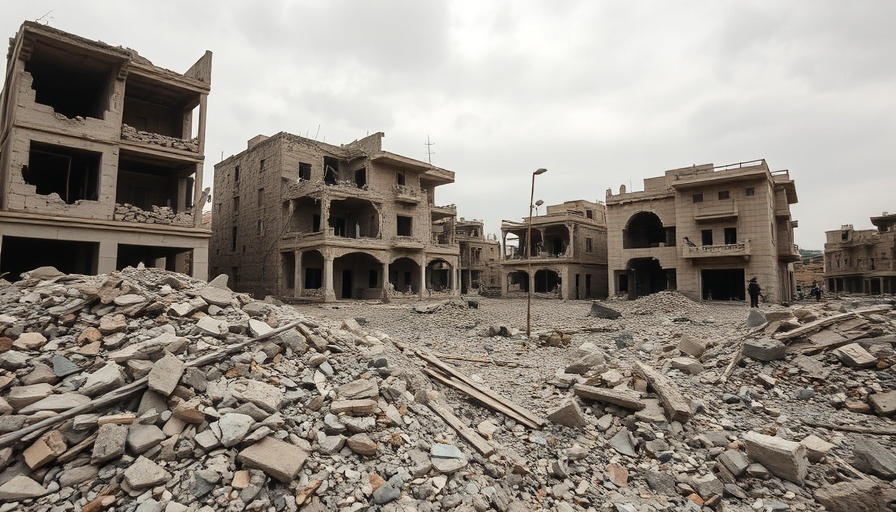
The Global Impact of South Africa’s Stance Against Israeli Airstrikes
In a decisive response to the escalating tensions in Gaza, the South African government has officially condemned Israel's recent military actions. This condemnation comes after a week filled with devastating airstrikes that have left hundreds of Palestinians dead, particularly grieving the loss of innocent children among the casualties. Citing international law violations, South Africa's Department of International Relations and Cooperation (DIRCO) has raised serious concerns over Israel's commitment to a ceasefire that was originally brokered by the United States, Egypt, and Qatar.
The ongoing conflict has drawn not just local, but also broad international criticism, positioning South Africa as a vocal global advocate for Palestinian rights. Prime Minister Benjamin Netanyahu emphasized the necessity of military pressure on Hamas as part of his broader military objectives in the region, which has raised moral questions about civilian protection in warfare.
Historical Context and Background
South Africa's condemnation of Israel's military actions is rooted in its historical struggle against apartheid and ongoing advocacy for human rights. The nation has positioned itself as a moral compass, grounded in its own experiences of oppression, advocating for those who suffer from violations of their rights worldwide. This position resonates significantly with the local population, many of whom reflect a complex interplay of historical and contemporary racial injustices within their discourse on global policies.
The Social and Political Relevance
The Israeli-Palestinian conflict has long been a point of contention in international relations, and South Africa aligns itself with a multitude of nations advocating for a two-state solution, highlighting themes of racial reconciliation and self-determination—issues shared in South Africa's own democratic evolution. The global response to the violence in Gaza, as expressed by South Africa, underscores a shared commitment to peace and justice for marginalized communities across the globe.
Future Predictions and Political Implications
As tensions escalate in the Middle East, the implications are profound for not just regional politics but international diplomatic relationships. South Africa's vocal stance may enhance its influence within the African Union and BRICS, positioning it as a leader in advocating for human rights. Furthermore, with the 2024 general elections on the horizon, the governing African National Congress (ANC) may leverage the condemnation to solidify its base, connecting its foreign policy efforts with domestic sentiments against oppression and state violence.
Counterarguments and Diverse Perspectives
While many support South Africa's condemnation, contrasting views point to the complexities of Middle Eastern politics. Detractors argue that Israel's military actions are a necessary response to terrorism, particularly in the context of Hamas' activities. This highlights a broader debate over the balance between national security and humanitarian concerns in foreign policy.
Conclusion: The Broader Call for Accountability
South Africa's condemnation of Israel's military actions in Gaza is multifaceted, rooted in historical context, driven by a commitment to humanitarian rights, and reflects a shifting landscape in international relations. The vibrant civil society response within South Africa, coupled with government assertions, forms a call for accountability from the global community. For professionals observing these dynamics, understanding the intersection of national policy, global humanitarian advocacy, and domestic political implications is vital as we move towards further electoral cycles and potential shifts in government policies.
 Add Row
Add Row  Add
Add 




Write A Comment